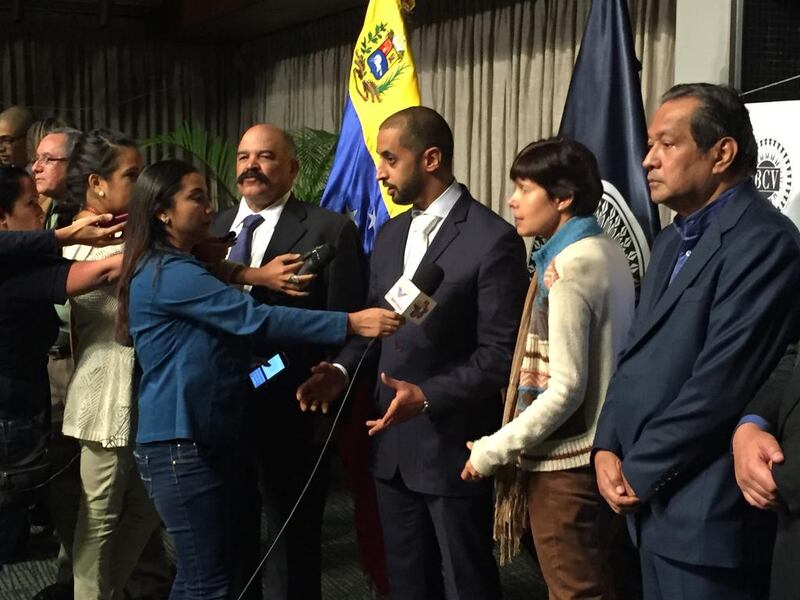CARACAS // The UAE is ready to back a bid by Venezuela to return to the international diamond trading community, said Ahmed bin Sulayem, chairman of the Dubai Multi Commodities Centre, after a series of meetings in the country.
Mr bin Sulayem is the new chairman of the Kimberley Process (KP), the regulatory regime for the global diamond trade. Venezuela, rich in the gems but facing a financial meltdown as a result of low oil prices, wants to resume diamond trading after a seven-year halt.
“There is still some way to go but my meetings here have convinced me that Venezuela is serious about rejoining the process. I hope they will go further and play a leadership role in helping resolve other outstanding issues in the diamond business,” said Mr bin Sulayem.
His visit to beleaguered Venezuela is the first since he assumed chairmanship of the KP at the start of the year, and is a sign of how important he regards the country’s return to full participation in it.
The Venezuelan authorities have said the resumption of diamond trading is a crucial step in their plan to lift the country out of an apparent downwards spiral of financial crises, potentially earning it billions of dollars of precious foreign currency.
Jose Khan, the director of the Venezuelan Central Bank responsible for the country’s mineral resources, said: “Mr bin Sulayem’s visit is important for us. It will allow us to re-enter the international diamond world with values made by Venezuelans.”
Venezuela left the KP in 2008 amid concerns from other members that it was not complying with the rules on certification of gems. The Kimberley Process Certification Scheme was set up in 2003 to stop the flow of “blood diamonds” – gems produced in war zones and linked to humanitarian abuses – on to the world’s markets.
Venezuela was not a war zone, but under socialist president the late Hugo Chavez it declined to participate in the KP, effectively depriving itself of revenue from the multibillion-dollar diamond trade.
The reception given to Mr bin Sulayem in Caracas marks the end of that policy.
At meetings with the minister of oil and mining, Eulogio Del Pino, and the central bank president Nelson Merentes, he was told that Venezuela wanted to return to the KP and resume diamond trading as quickly as possible.
The way is now clear for Venezuela to host a formal review visit by KP members next month. Depending on the findings of the review committee, Venezuela could be back trading diamonds by the end of the year. “I look forward to a positive report,” Mr bin Sulayem said.
In little more than 10 years, Dubai has risen to become a main centre of the global diamond trade, rivalling traditional centres such as Antwerp and India, through the Dubai Diamond Exchange, based in the DMCC.
Cash-strapped Venezuela has already begun to prepare for a resumption of diamond trading. New legislation allows diamond resources to be included in its central bank’s foreign reserves, which have been depleted by falling oil revenue and a soaring balance of payments deficit.
The country, under the president Nicolas Maduro, is believed to be in talks with Deutsche Bank to allow it to draw cash against gold deposits held by the central bank.
The valuation placed on diamonds in the reserve has yet to be decided, and could be complicated by the fact that Venezuela has not traded gems on world markets since 2008.
But diamond experts in Caracas say there are potentially billions of carats of diamonds in the country’s “arc of minerals” near the borders with Colombia, Brazil and Guyana.
The region, which is also one of the prime oil-producing areas of the country, is under tight security, with a big military presence.
An internal restructuring of the ownership of the country’s natural resources has increased military influence over the vital sector.
fkane@thenational.ae
Follow The National's Business section on Twitter





